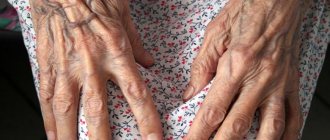Home / Situations
Back
Published: 03/16/2020
Reading time: 5 min
7
8945
Dairy kitchen is a form of state support for children and mothers in the Russian Federation. This type of support is aimed at providing free food to pregnant women and children under three years of age. What products can be obtained in a dairy kitchen today and what is included in the grocery set? On the basis of what documents is food provided?
- Who is entitled to
- What they give out in the dairy kitchen in 2021 Using Moscow as an example
- Using the example of the Moscow region
- Using the example of St. Petersburg
- Using the example of Bashkortostan
- Prescription expiration dates
What is a dairy kitchen for children?
The concept of dairy cuisine appeared in Tsarist Russia, although at that time these were not yet standardized institutions and, of course, did not yet issue the list of products that exists now.
In 1901, at the St. Petersburg city shelter, additional complementary feeding was organized for premature babies. Here the babies were given expressed milk from wet nurses, and then regular cow's milk. In this way, the state reduced infant mortality.
After the revolution, this initiative passed to the USSR. The country of the Soviets needed strong and healthy children; the propaganda of those years proclaimed from all the posters: “Children, drink milk, you will be healthy!” Dairy kitchens were organized at shelters and children's hospitals. In such kitchens, children were given milk and fermented milk products (kefir, cottage cheese). This initiative became especially valuable during the war and in the post-war years, when the mortality rate of children was colossal.
In the USSR, the dairy kitchen itself produced products and distributed them according to recipes. Beginning in the 90s, after “perestroika,” dairy kitchens acquired the status of distribution points. Contracts are concluded with manufacturing companies and they supply their products to dairy kitchens.
In Russia, the concept of dairy cuisine is not enshrined in legislation. Although the issuance of products is carried out and is prescribed in federal regulations. Thus, the main one is Federal Law No. 323-FZ “On the fundamentals of protecting the health of citizens in the Russian Federation” dated November 21, 2011. The same law indicates that the distribution of benefits is carried out by local authorities - this is stipulated in Article 52.
Today, the dairy kitchen is a special food distribution point for children, pregnant and lactating women. They provide food at clinics and hospitals. Despite the name “dairy cuisine”, the list of products also includes purees, juices and cereals.
Legislation
Dairy cuisine is one of the regional measures of social support for the population. Its activities are regulated by Federal Law No. 323 “On the fundamentals of protecting the health of citizens” dated November 21, 2011.
Download for viewing and printing:
Federal Law of November 21, 2011 No. 323
In Moscow, the activities of institutions providing free food are regulated by Government Order No. 292 of 04/06/14.
Download for viewing and printing:
Order of the Government of the Russian Federation No. 292
Who is eligible for the dairy kitchen?
State assistance is provided to several categories of persons at once. The main provisions on who can count on food products from the dairy kitchen are spelled out in Law No. 323-FZ in Article 52, these are:
- pregnant women;
- nursing mothers;
- children under 3 years of age.
Meals are provided upon the direction of a doctor. Depending on the region, clearer distinctions are established between recipients of assistance. For example, in Moscow, a dairy kitchen is available for:
- Children no older than one year. At the same time, they must be on mixed or artificial feeding.
- Children from one to three years old.
- Children under 7 years of age who are members of a large family.
- Children with disabilities.
- Those who have not yet turned 15 years old - in the presence of chronic diseases: glomerulonephritis, malignant neoplasms, hemoblastosis. These diseases are approved in Appendix 3, Order No. 546.
- Pregnant women - regardless of the period.
- Mothers who breastfeed – until the baby reaches 6 months of age.
In which cities does this program operate?
Pregnant and nursing mothers and their children registered at their place of residence in Moscow, who have a compulsory medical insurance policy and are assigned to the clinic, can receive free meals under the dairy kitchen program. Residents of Moscow Region who have registration and are assigned to a clinic have exactly the same rights.
After all of the above conditions are met, you need to make an appointment with a pediatrician or therapist at your clinic and receive a prescription that gives you the right to use a children's dairy kitchen in Moscow.
Unfortunately, the dairy kitchen program is only available to residents of Moscow and the Moscow region.
Up to what age is the issuance allowed?
Each subject also sets age restrictions independently.
Examples:
1) Based on Order of the Moscow Department of Health No. 546 dated June 11, 2014, children from birth up to the age of 15 can apply for assistance.
2) Decree of the Government of the Republic of Bashkortostan No. 784 dated December 30, 2021 establishes the age of recipients for residents of this region: children from birth to 3 years of age.
3) In the Sverdlovsk region, this norm is regulated by Government Decree No. 167-PP dated March 2, 2011. The document states that dairy products are issued up to the following age:
- from 0 to 8 months - for children on mixed and artificial feeding;
- from 2 to 6 months - for children who weighed less than 1,500 grams at birth;
- from 3 to 12 months – for children with a severe form of food allergy to cow’s milk protein;
- from 8 months to 3 years – for children from low-income families who do not attend municipal kindergarten.
How often do you update the recipe?
The recipe has a certain expiration date. Most often, this is 1 month, but at the doctor’s discretion it can be longer.
- For pregnant and nursing mothers - once every 3 months;
- Children under 3 years old – once every 3 months;
- From 3 years – once every six months.
The prescription is issued for a period based on how soon the child needs repeated examinations by a doctor.
If you apply for a prescription before the 15th, the prescription will be issued for the current month, and after the 15th - for the next month.
What do they give in children's kits?
The composition of the sets is determined by local authorities. In this regard, the composition of food aid differs in each constituent entity of the Russian Federation. This point is regulated by local orders and regulations. They should be considered separately in order to understand what kind of help you can count on.
What do they give in Moscow?
The set of products is regulated by order of the Moscow Department of Health No. 546. Appendix 4 indicates that beneficiaries receive food in the following order:
| Age, months | Products | Amount in grams per month |
| From birth to six months | Dry/liquid adapted milk formula | 700/4800 |
| from 3 to 4 | Fruit juice/puree | 1000 each |
| from 5 | Vegetable puree | 1920 |
| Fruit juice/puree | 1000 each | |
| Dry instant porridge | 400 | |
| from 6 | Fruit juice/puree | 1200/1000 |
| Vegetable puree/Dry porridge | 1920/400 | |
| from 6 to 12 | Dry/liquid adapted milk formula | 350/2400 |
| from 7 to 8 | Cottage cheese | 600 |
| Fruit juice/puree | 1400/1000 | |
| Porridge (dry) | 400 | |
| Vegetable/meat-vegetable/meat puree | 1920/1300/560 | |
| from 9 to 12 | Cottage cheese/kefir | 600/2000 |
| Fruit juice | 1400 | |
| Dry porridge | 400 | |
| Vegetable/fruit puree/meat-vegetable/meat puree | 1920/1000/1300/560 |
The range of products changes from year to year. Issued for up to two years:
- baby milk – 2400 g per month;
- kefir – 2000 g/month;
- cottage cheese – 600 g/month;
- fruit juice/puree – 2000/800 g/month.
From 2 to 3 years the composition of the set does not change. But they give 400 grams less milk, and the same 400 grams more juice.
Pregnant women in Moscow are given 6,000 grams of milk per month and 2,640 grams of fortified juice. Nursing mothers receive increased portions: 8000 grams of milk and 3300 grams of juice.
As for children over 3 and under 15 years old, they are only allowed milk. The amount of aid for a month is 18,000 grams.
Let's sum it up
Gone are the Soviet times, when in dairy kitchens you could only get milk and sour milk per child.
Now you can get a variety of food packages. Lack of awareness among citizens about the existence of a dairy kitchen can lead to a complete stop in its functioning.
Therefore, knowing about such a social program, do not neglect state support. Provide yourself and your baby with the necessary products for his growth and good health.
How to sign up for the dairy kitchen
Registration rules for a dairy kitchen vary in different regions. But in general terms the procedure looks like this:
- Collect documents.
- Contact the antenatal clinic (for pregnant women) or the regional children's clinic at the place of registration (for nursing mothers and children).
- Fill out an application. The application form will be issued by the doctor.
- Get the recipe. It must have the doctor's signature and seal. In addition, at the registry you need to put a clinic stamp and another stamp on it.
- The recipe must be taken to the dairy kitchen.
If the kitchen does not have a certain product, the citizen is put on a waiting list to receive it. Once the products arrive, they can be picked up.
Monthly allowance and lump sum payments upon birth of a child in 2021
What documents need to be collected
To receive assistance, you must provide the following documents:
- application from the recipient of assistance;
- copies of the passport on the photo and registration pages;
- a copy of the certificate of registration at the place of residence and the birth of the baby;
- a copy of the medical policy;
- certificates confirming social status - a certificate of a large family, a medical examination certificate or a certificate of the presence of a chronic illness.
This is a sample list. You can check the list of required documents at the children's clinic or antenatal clinic.
Expiration date of a dairy recipe
In Moscow, prescription forms for free meals have a validity period:
- no more than a month - for pregnant women and children up to one year old;
- up to 3 months – in the case of children from 1 to 3 years old and mothers who are breastfeeding;
- up to six months - issued to children from large families, disabled people and those with chronic diseases.
And in the same Republic of Bashkortostan, prescriptions are issued for all recipients on a monthly basis.
What documents need to be collected
In order to use the services of a dairy kitchen, you need to collect a package of documents, which differs in each region. For example, in Moscow you will need to collect the following package of documents:
- baby's birth certificate;
- insurance policy;
- child's registration document;
- document from the parents’ place of work;
- if the family has many children, a document confirming this;
- a document indicating the child’s health;
- if the child is disabled - the commission’s conclusion.
In order for pregnant women and nursing mothers to receive food for free, they will need to write a corresponding application to the chief physician. Pregnant women can obtain a sample application from their antenatal clinic. Or watch it here.
Attention! Lack of permanent registration is not a reason for refusal to issue products. Temporary registration is also suitable.
Answers to readers' questions
The main provisions of the legislation make it possible to obtain product sets without any problems. But there are some peculiarities in the form of assistance. They relate to certain categories of citizens and the nuances of issuing dairy products.
How to get a dairy kitchen through State Services?
Registration of benefits electronically is not possible in all regions of the country. So, this opportunity works in Moscow on the mos.ru portal and in the Moscow region, but on the Moscow Region services portal. The algorithm looks like this:
- go to the portal uslugi.mosreg.ru;
- enter a search query “Assignment of monthly cash payment for food”;
- click on the “online” button;
- the site will redirect to the form filling section;
- log in to the ESIA system;
- fill out an extended application - enter data from the main documents.
Legislatively, the state does not oblige in any way to provide the possibility of issuing assistance in electronic form. Therefore, such a decision depends on the specific subject of the Russian Federation.
Working hours of the dairy kitchen in Moscow?
There are 250 milk distribution points in the capital. They work seven days a week - from Monday to Sunday. Opening hours: from 6.30 to 12.00.
What are Putin’s child benefits, who is entitled to them and how to get them
How to get money for a dairy kitchen?
It is impossible to replace products issued by the state with money. If the regional law stipulates the possibility of obtaining financial assistance, then they receive money. If the delivery of products is prescribed, it will not be possible to receive a cash equivalent.
For example, in St. Petersburg, the dairy kitchen has been replaced with cards used to pay for products. But in Moscow, monetary compensation is not provided.
Where to donate baby food in Moscow?
Since the products are issued the same for everyone, they do not always suit the recipient. For example, an allergy may be to dry mixtures, juices and purees. Then the question arises, where to give the products. There are groups in Moscow where parents can exchange help. The Cuckoo Society is one of these. There you need to place a post marked “I’m giving away” and write to someone who needs the products.
Charitable organizations also accept food packages. But there is a limited list - only those products that can be stored for a long time. Fresh milk will not work, as there may not be anyone who needs it in such a short time.
What mixture is given in the dairy kitchen?
Each medical institution has different brands of formulas and other products. It all depends on which supplier the contract is concluded with. This can be clarified in advance with the doctor who writes the referral. In Moscow, for example, the products most often included in the sets are Fruto-nanny, Similak, and Malyutka.
From when can pregnant women eat milk?
The moment at which a pregnant woman can apply for milk is prescribed in the laws of the subject. Therefore, there are no general rules for the entire Russian Federation.
For example, in Moscow, a pregnant woman can receive milk from the very first day of registration until the birth of the child. The same rules apply to St. Petersburg.
Is the dairy open on Sunday?
The operating hours of the milk distribution point depend on the specific region. So, in Moscow you can get baby food any day of the week. The points are open from 06.30 am until lunch – 12.00.
But in Ufa you can only get milk on weekdays. But reception hours are longer than at Moscow points - from 08.00 to 17.00.
Where can I complain about a dairy kitchen?
Milk dispensing points are an integral part of a medical institution. In this regard, if problems arise with the operation of the dairy kitchen, you should seek clarification from the management of the hospital or clinic.
Responsibility for violations in this area lies with the persons specified in Federal Law No. 323-FZ “On the fundamentals of protecting the health of citizens in the Russian Federation.” Article 98 of the law states that these include:
- Government departments. These are city or regional councils, health departments, Rospotrebnadzor.
- Local government bodies. You can send a complaint to the district government, to the department for work with the population.
- Officials of organizations. These include heads of medical institutions and those who supervise the work of dairy kitchens.
What is a birth certificate and why is it needed?
What is provided in the dairy kitchen for families with many children?
For large families there are no additional or special food packages provided at the dairy kitchen.
The only exception is that in Moscow, children from large families are given products from the dairy kitchen up to 7 years of age, while those without large families are only given up to 3 years of age in general cases and up to 15 years of age if the child has one of the chronic diseases listed in the section above . If the disease is detected in a child from a large family, he will also be given food until he is 15 years old. Read also: What is due to large families in 2021: benefits, payments, allowances and other assistance from the state.
What do they give in the dairy kitchen after a year?
Depending on the program of the subject of the Russian Federation, additional products are added to dry and liquid mixtures. After a year in Moscow, in addition to baby milk, they give out:
- kefir;
- cottage cheese;
- fruit juice;
- fruit puree.
In the Republic of Tatarstan, adapted mixtures are excluded and issued:
- milk;
- kefir and similar fermented milk products;
- cottage cheese.
Is the dairy kitchen open on holidays?
The organization of work of each specific dairy kitchen depends on the region in which it is located. This norm is not regulated by law and each medical institution has the right to set its own schedule. For example, Moscow points work seven days a week and are open on holidays.
Single mother: benefits and allowances, as well as additional social assistance and subsidies in 2021 + analysis of situations
How to find your dairy kitchen?
Distribution points for milk and fermented milk products are directly linked to medical institutions. After issuing a prescription form, the doctor sends the order to the dairy kitchen. They are organized in the same area where the medical institution is located. Therefore, you can find out the address of the food kit distribution point immediately at your doctor’s appointment.
The same information is duplicated on the prescription for issuance - you cannot go to another point for products. They are ordered strictly according to the quantity specified in the documentation. To avoid confusion and delays in delivery, you must arrive on the appointed day and at a specific point.
How much formula is given in the dairy kitchen?
Portion sizes are set individually in each region. You can compare the indicators in Moscow and the Republic of Tatarstan.
In Moscow, 4800 ml of liquid formula is given per child per month, until 6 months. In the Republic of Tatarstan, 6000 ml of the same product is given out per month. Everything depends on funding within the region and on the decision of local authorities in terms of distribution of budget funds.
Cash compensation for milk per child
The state also provides financial support for baby food for women who do not have access to dairy kitchens. The reason for this may be living in an area where they are simply not available, or there is no one to leave the baby with for a trip to buy food packages.
One way or another, there is an opportunity to get help in monetary terms, but it is not comparable either with store prices or with the quality of purchased products.
Regarding the amount of payment, it is disproportionately small.
Since the cost of the grocery set as calculated on January 1 by month is 50 rubles, the payment amount varies in different regions (from 100 to 700).
For this amount it is impossible to buy the same products in a supermarket.
Regarding the quality of products, according to state standards, baby food that is given to a child in dairy kitchens must be produced at manufacturing plants exclusively from natural milk, and not powdered milk, which increases the shelf life of the product.
Remember
- Receiving food packages from dairy kitchens is not possible in all regions of the country.
- At the local level, they complete the set - whether juices and purees are included with milk and curds. This is decided by the self-government of the city, the subject. Therefore, it is impossible to approve the norm at the state level.
- Products from dairy kitchens can be received by pregnant, lactating women and children from birth to 3, 7 or 15 years of age, depending on the region.
- In some regions, instead of a ready-made set of products, monetary compensation is provided.
Dessert Video: 9 Crazy Wave Pools That Really Exist
Closing of dairy kitchens
Fears about the closure of dairy kitchens in Moscow and the Moscow region have so far turned out to be in vain. The authorities are not saying anything specific, but dairy kitchens continue to operate, and moreover, the range of some products has increased.
Kitchens are attached to either children's clinics or outpatient clinics
Issuance procedure
Let's look at this in more detail. To avoid an awkward situation and speed up the process of receiving free products, you need to know the answers to a few questions before going for them. The most important among them are the following:
- On what basis is social assistance provided?
- How does a dairy kitchen work?
- Who can receive food for a child?
- How many times a month are products distributed?
As a rule, the answers to them are as follows:
- You can visit the free kitchen with a special ticket, which can be obtained from your pediatrician or gynecologist.
- Pick-up points operate according to a specific schedule. It's different for everyone, so you should check it first. It should be taken into account that some product groups are issued at strictly established hours.
- Any person who has a ticket with a serial number can receive social assistance. This can be not only parents, but also relatives or acquaintances.
- The frequency of distribution of products depends on the age category of the child. As a rule, parents visit the dairy kitchen once a week, but it is better to clarify this issue with its employees.
It is worth noting that most often the distribution points operate at clinics, so you won’t have to look for them for a long time. You can find out if it is in your hospital from your attending physician. He will also tell you in detail up to what age they provide dairy food and explain in detail what is needed to receive free products.
Compensation
This is the main question that interests mothers. You already know up to what age the dairy kitchen provides free products. But in our country everything is not so simple. Unfortunately, residents of not all cities can receive them, and there is nothing to mention about villages. This is due to too high financial costs for food delivery and organizing the work of distribution points. However, instead of food, you can receive financial assistance every month in an amount equivalent to their cost. But to do this, you will need to confirm your right to receive government assistance. To do this, you need to collect documents in accordance with the list given earlier in this article.
Procedure for applying for social assistance
So, how does it happen and what is its feature? To get everything done quickly and without unnecessary problems, it is better to consult a clinic at your place of residence. But you can do without this and start decorating right away. First of all, you need to find out up to what age the dairy kitchen provides products.
You already know the answer to this question, so you can proceed to the next step. You need to go to your pediatrician and get a prescription from him. Next, go to the issuing point, which is located in your clinic or near your place of residence, and submit an application. Without it, no one will give you food, even if you fall into a category for which social assistance is provided. You must also have a package of standard documents with you. What exactly it includes will be described below.
The legislative framework
If you do not know up to what age citizens are allowed to eat dairy in Moscow, then you should carefully read the federal law number 323-F3. According to him, expectant mothers and young children need high-quality nutrition. Therefore, local authorities are obliged to organize free kitchens or pay cash benefits to families.
At one time they wanted to cancel the dairy kitchen, because many families did not come for it, which is why the budget suffered large losses. They wanted to completely replace it with financial assistance, but baby food sold in stores goes through fewer stages of processing and may also contain harmful components. Therefore, despite lengthy disputes, they still preferred to leave it.
general information
Despite the fact that government assistance is guaranteed by the state, in practice everything is not so simple. Therefore, before we find out about the age at which dairy food is issued to citizens, let’s first understand the main nuances. As noted above, each region has different rules for issuing food products. Some provide them as part of the pregnancy diet, while others provide them only for children. There are also cases when nursing mothers stop receiving milk altogether if the baby is 3 years old.
This is because dairy regulations are reviewed by the government every year. Edits are made at the local level, which explains the differences in individual regions. Therefore, parents should constantly monitor any changes in the law in order to be aware of their rights and, if possible, take advantage of any possible benefits.
Issue norms
This aspect is definitely worth familiarizing yourself with. A very important question is the age up to which the children's dairy kitchen provides free products. But you also need to know how much of them you can get. The legislation for women establishes the following standards:
- during gestation - 2.6 liters of juice and 6 liters of milk;
- for the lactation period - 3 liters of juice and 8 liters of milk.
For children, the food basket is calculated by the pediatrician individually. Most often it looks like this:
- 0-3 months - 700 g of infant formula and 4.2 kg of liquid;
- 3-4 months - additional 1.2 liters of juice and 1.38 kg of puree;
- 4-5 months - 700 g of dry mixture, liter of apple juice, 1.1 kg of fruit puree, 2.4 kg of vegetable puree, 400 g of cereal;
- 5-6 months - the same composition remains, but the amount of infant formula is reduced by 2 times;
- 6-7 months - the food basket is supplemented with 600 g of curds, and the range of fruit juices and purees is expanded;
- 8 months - 1.3 kg of vegetable meat and 550 g of meat puree are introduced into the children's menu;
- 9-12 months - 2.4 liters of kefir are added to the norm described above;
- 1-2 years - all items except kefir, cottage cheese, as well as fruit juice and puree are excluded;
- 2-3 years - the amount of puree is reduced to 1.4 kg.
This norm is standard, but, as already written above, it all depends on the specific region.
Terms of service?
The decision to assign a payment is made by the Social Security Administration within 10 working days . Money is transferred no later than the last day of the month following the month of circulation. For example, if you submit an application in January, the first payment will be made before February 29.
Further, during the entire period for which the payment is scheduled, money will be received monthly. They can be transferred to a bank account or transferred by mail. The recipient has the right to choose any of these methods when filling out the application.











